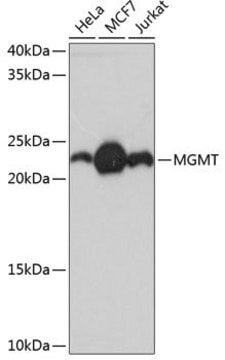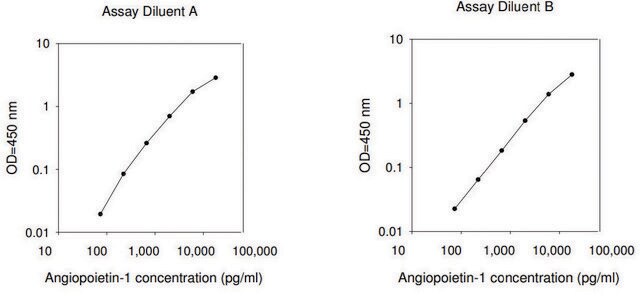E8651
Anti-E2F3 antibody ,Mouse monoclonal
clone PG30, purified from hybridoma cell culture
About This Item
Prodotti consigliati
Origine biologica
mouse
Coniugato
unconjugated
Forma dell’anticorpo
purified from hybridoma cell culture
Tipo di anticorpo
primary antibodies
Clone
PG30, monoclonal
Forma fisica
buffered aqueous solution
PM
antigen 57 kDa
Reattività contro le specie
human
Concentrazione
~2 mg/mL
tecniche
immunoprecipitation (IP): suitable using denatured E2F3
microarray: suitable
western blot: 4-8 μg/mL using transfected 293T cells expressing E2F3
Isotipo
IgG2a
N° accesso UniProt
Condizioni di spedizione
dry ice
Temperatura di conservazione
−20°C
modifica post-traduzionali bersaglio
unmodified
Informazioni sul gene
human ... E2F3(1871)
Descrizione generale
Immunogeno
Applicazioni
- immunoprecipitation using denatured E2F3
- western blotting at a concentration of 4-8μg/mL using transfected 293T cells expressing E2F3
- electrophoretic mobility shift assay (EMSA).
Azioni biochim/fisiol
Stato fisico
Nota sulla preparazione
Esclusione di responsabilità
Non trovi il prodotto giusto?
Prova il nostro Motore di ricerca dei prodotti.
Codice della classe di stoccaggio
10 - Combustible liquids
Classe di pericolosità dell'acqua (WGK)
nwg
Punto d’infiammabilità (°F)
Not applicable
Punto d’infiammabilità (°C)
Not applicable
Certificati d'analisi (COA)
Cerca il Certificati d'analisi (COA) digitando il numero di lotto/batch corrispondente. I numeri di lotto o di batch sono stampati sull'etichetta dei prodotti dopo la parola ‘Lotto’ o ‘Batch’.
Possiedi già questo prodotto?
I documenti relativi ai prodotti acquistati recentemente sono disponibili nell’Archivio dei documenti.
Il team dei nostri ricercatori vanta grande esperienza in tutte le aree della ricerca quali Life Science, scienza dei materiali, sintesi chimica, cromatografia, discipline analitiche, ecc..
Contatta l'Assistenza Tecnica.







